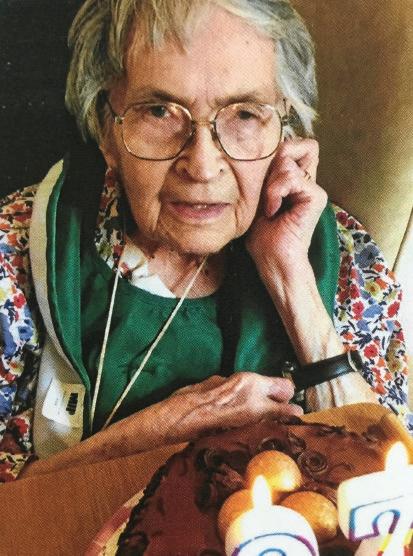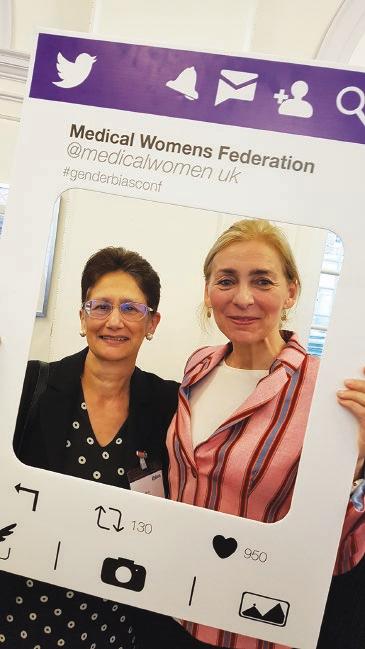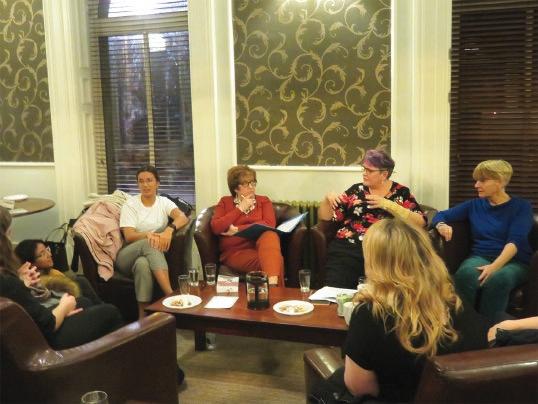
7 minute read
Global health: Palestine a right to health
Physicians for Human Rights Israel (PHRI): a right to health
Dana Moss is PHRI’s International Advocacy Coordinator. With over 15 years working in think tanks and policy change organisations, Dana believes in multilayered advocacy strategies and the combination of storytelling, medical ethics and international law as effective tools in engendering change. Dana graduated from the University of Oxford, with an LLM in Law and M.Phil in Middle Eastern studies.
Physicians for Human Rights Israel (PHRI), one of Israel’s leading human rights organisations, advocates for the right to health of the most vulnerable communities in Israel and the occupied Palestinian territory. Hand-in-hand with over 3,000 volunteers, PHRI carries out both humanitarian and policy change work to ensure a future where the right to health is applied equally to all those living under Israel’s responsibility.
Ghada Majadli is PHRI’s Director of the occupied Palestinian Territory department. Ghada conducts policy change work within Israel and advocates for the right to health and access to proper medical care for Palestinians. Ghada holds an MA in Human Rights and Transitional Justice from the Hebrew University of Jerusalem and a bachelor’s degree in Social Work.
It is a story of a small success in the face of an on-going, sisyphean human rights struggle. When Mariam, age 35, from the Gaza Strip, went for a regular check-up at her doctors, breast cancer was suspected. She was referred outside of the Gaza Strip to get a proper diagnosis. She received a medical exit permit from the Israeli authorities – without which she couldn’t access hospitals in East Jerusalem and the West Bank – and attended appointments and examinations, first in Hebron, then in East Jerusalem, where the initial suspicions were confirmed. As appropriate medical treatment for this type of cancer is unavailable in Gaza, she was referred for chemotherapy outside of the Strip in a Palestinian hospital in East Jerusalem. Yet suddenly, the Israeli authorities refused to give her a medical exit permit, leaving her with cancer, but without treatment. Mariam appealed to Physicians for Human Rights Israel (PHRI) – an Israeli human rights organisation in which the authors work – for assistance. Once PHRI wrote to the Israeli authorities, it was revealed that Mariam would receive a medical exit permit only on condition that she attend a security interrogation by the Israeli security forces, a practice which often serves as a means of basic information-gathering by the Israeli authorities and which renders patients as suspect of collaboration in the eyes of Hamas. Haneen Kinani, the staff member at PHRI who worked with Mariam to try and overturn the decision of the Israeli authorities, sees many such cases and notes “it’s frustrating to see how health permits are conditional for Palestinians, and not given as a right. For cancer patients every moment is critical – we hear their anxiety and worry in their voice when they call us – and the military neglects their situation.” In 2018, according to the World Health Organisation (WHO), 9,644 patients from Gaza applied to the Israeli authorities for medical exit permit in order to receive appropriate care in the West Bank, East Jerusalem or in Israel, of which roughly a quarter were oncology patients. Roughly a quarter of those needing to leave Gaza for medical treatment elsewhere need to exit for cancer treatment, as nuclear medicine scanning, radiotherapy, and various surgeries are unavailable locally, as are many chemotherapy drugs. Although Israeli troops are not normally present in Gaza, Israel controls entry and exit from Gaza to other parts of the occupied Palestinian territory, namely the West Bank and East Jerusalem. East Jerusalem specifically is a primary location for many Palestinian patients from Gaza, as it is where most of the specialist Palestinian hospitals are based. From these 9,644 patients, 61% received a medical exit permit in time for their appointments: an approval rate which was, as per the local WHO office, ‘the second lowest recorded by WHO’.

PHRI is only able to help roughly 250 patients each year and each time patients do not receive a medical exit permit in time for their appointment, they must re-apply and the process of requesting appointments, submitting documents etc, recommences. As a result, thousands of patients either wait in Gaza and keep applying for a medical exit permit, try and cross through Rafah to receive medical care in Egypt, that entails a lengthy journey and considerable expenses to cover their stay there, or they give up, resigned to remaining in the Strip with ineffective and inappropriate medical care. The need for patients to exit the Gaza Strip to receive appropriate care has grown in recent years. The over decade-long blockade imposed on Gaza by the Israeli authorities has restricted the flow of people and goods, including medical professionals and medical equipment. This has resulted in the ongoing deterioration of the medical system, compounded by Israel’s numerous military operations, and the conflict between Hamas and the Palestinian Authority. Patients are directly impacted, with growing restrictions by Israel placed on their exit from Gaza. In 2012, according to the WHO, 92% of patients needing to exit the strip for medical care elsewhere received a medical exit permit in time for their hospital appointment. In 2017, this number plummeted to 54% and has only slightly risen in 2018. As restrictions have grown, an increasing number of women with cancer began appealing to an PHRI. From 2017 until 2019, PHRI helped 348 women who needed to leave the Strip, including 174 cancer patients. International resolutions, such as UN Resolution 1325, recognise that violent conflicts affect women and men differently and call on States and civil society organisations to assess the unique needs of women in conflict and post-conflict areas, as a precondition of policy change that accounts for women’s needs. Meanwhile, the World Medical Association has urged constituent members to ‘insist on the rights of women and children to full and adequate medical care’. To ensure that female cancer patients received their medical exit permits, PHRI launched a campaign. From 2017-2018, we worked together with Israeli civil society groups, including feminist groups and other Israeli organisations who then lobbied the Coordinator of the Government Activities in the Territories – the Israeli body in charge of issuing permits – on behalf of these patients. Simultaneously, over 30 top oncologists wrote to the Israeli authorities of the need to enable these women to access treatment. The international community also confirmed the stance of PHRI and the other organisations, with the United Nations Special Rapporteur on Health issuing a communique to
the Israeli government on the impact of these medical exit permit denials. PHRI’s efforts culminated in a victory at the Supreme Court in mid-2018, which argued that the refusal of medical exit permits, and therefore access to treatment, to specific cancer patients on the basis of what the Israeli army termed ‘family proximity to Hamas’, was unjustified, disproportionate and illegal. By the end of 2018, the combination of these actions were enough to reverse the decisions in each of the patients’ cases that PHRI had received until then – namely, each of the 129 women who reached out to us received a medical permit, exposing arbitrariness of medical exit permit denials. We at PHRI cautiously celebrated, but since this success, and since PHRI paused its intensive campaign at the end of 2018, the numbers of female cancer patients who have requested our assistance has grown. In 2019, 26 women with cancer turned to PHRI, and it looks like these numbers are set to grow. In Mariam’s case, she finally received a medical exit permit after PHRI appealed to the Court. By then, she had already missed 2 hospital appointments – and she is one of the luckier ones.

Unless established medical voices speak out, the likelihood is that this trend will continue. The UN Committee on Social, Economic and Cultural Rights – which reviews the Covenant in which the right to health is enshrined – called on Israel to ‘review the medical exit permit system with a view to facilitating timely access to all medically recommended health care services by residents of Gaza’. This is far more likely to happen if the Israeli medical community takes a stand that is aligned with medical ethics, as well as with human rights, and places internal pressure on the Israeli authorities to ensure that women – whatever their point of origin – access healthcare that is waiting for them only a few kilometers away.











